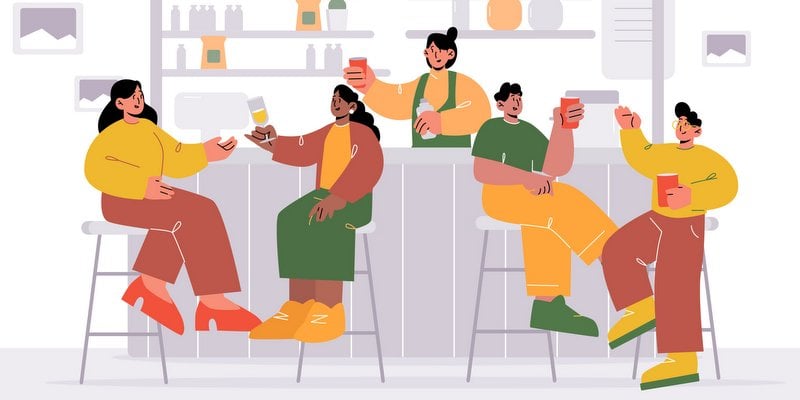
Every brewery is different, but everyone seems to be asking the same exact question right now: “how do we sell more beer with our accounts during the pandemic?” That’s a billion-dollar question considering how much our industry has grown over the past decade, and there is not one big, magic answer to this question. But there are sales strategies and techniques that can help you boost your off site beer sales, even under the worst market conditions.
First, you need solid relationships in your sales territory to weather the storm. No matter how we evolve as an industry or how much technology is around to facilitate communication, sales is still a relationship-focused profession. Beer buyers work with brewery salespeople that they know, like and trust, so if you don’t have that kind of rapport with the accounts in your market territory, you’re going to have a difficult time trying to sustain positive sales results during a crisis. Even in normal market conditions, you should be focused on improving buyer relationships.
Second, provide solutions, not more problems. Yes, our market has been substantially impacted by the health crisis, but as a salesperson, you don’t need to dwell on this with your buyers. It’s one thing to acknowledge our current challenges, in fact you should address problems like this head on, but you need to move forward and come to the table with solutions for how you will tackle these speedbumps together, instead of ruminating about how bad things are.
For example: states are in various stages of shutdowns for the on premise market segment, so customer foot traffic and sales volumes are down in those classes of trade. There’s no need to rehash this problem with your beer buyer every time you see them. Instead, spend your time working with them to come up with creative solutions that will produce sales in other ways, like takeout beer promotions or food and beer to-go packages.
Third, take a step back to figure out if you’re still selling beer the same way that you did prior to the crisis. Your market is not the same. Your buyer’s business is not the same. Consumers are not buying beer like they used to. So why are you still selling beer the same way? If the market conditions change, you’ve got to pivot your own sales tactics. You’ve got to adapt your selling strategies and techniques to the needs of your buyers and end consumers in your new market conditions.
Example: Wondering why promotional posters don’t work anymore for you in the on premise market segment? Because there’s fewer people drinking in-person. Knowing how to pivot these types of sales strategies let’s your buyer know that you’re paying attention to their current needs and the needs of their customers. Instead of relying on visual point of sale materials in on premise, try shifting to digital assets, like product shots, that you can provide to the account to use in their digital marketing efforts.
Finally, realize that outside sales are not about you. Successful salespeople know to take themselves out of the equation and sell in a consultative capacity. Your buyer isn’t concerned about your monthly commission or performance bonus, so you shouldn’t be selling with your own intentions in mind. You should be selling based on what that account and that buyer needs to make bring in more revenue for their business.
Ask yourself “how can I help them with their end goals, not mine?” or literally ask your buyer “how can I make your job easier?” Taking a need-based approach to selling beer during a crisis is one of the best ways that you can improve both relationships with your accounts and your own sales results.
Julie Rhodes is the owner of Not Your Hobby Marketing Solutions, the only educational services and consulting company built for the craft beverage industry that teaches you how to take the guesswork out of your sales, marketing, and distribution plans. Follow along on FB and IG @notyourhobbymarketing or book a call with her to discuss customized coaching plans for your craft beverage business.





Leave a Reply
You must be logged in to post a comment.